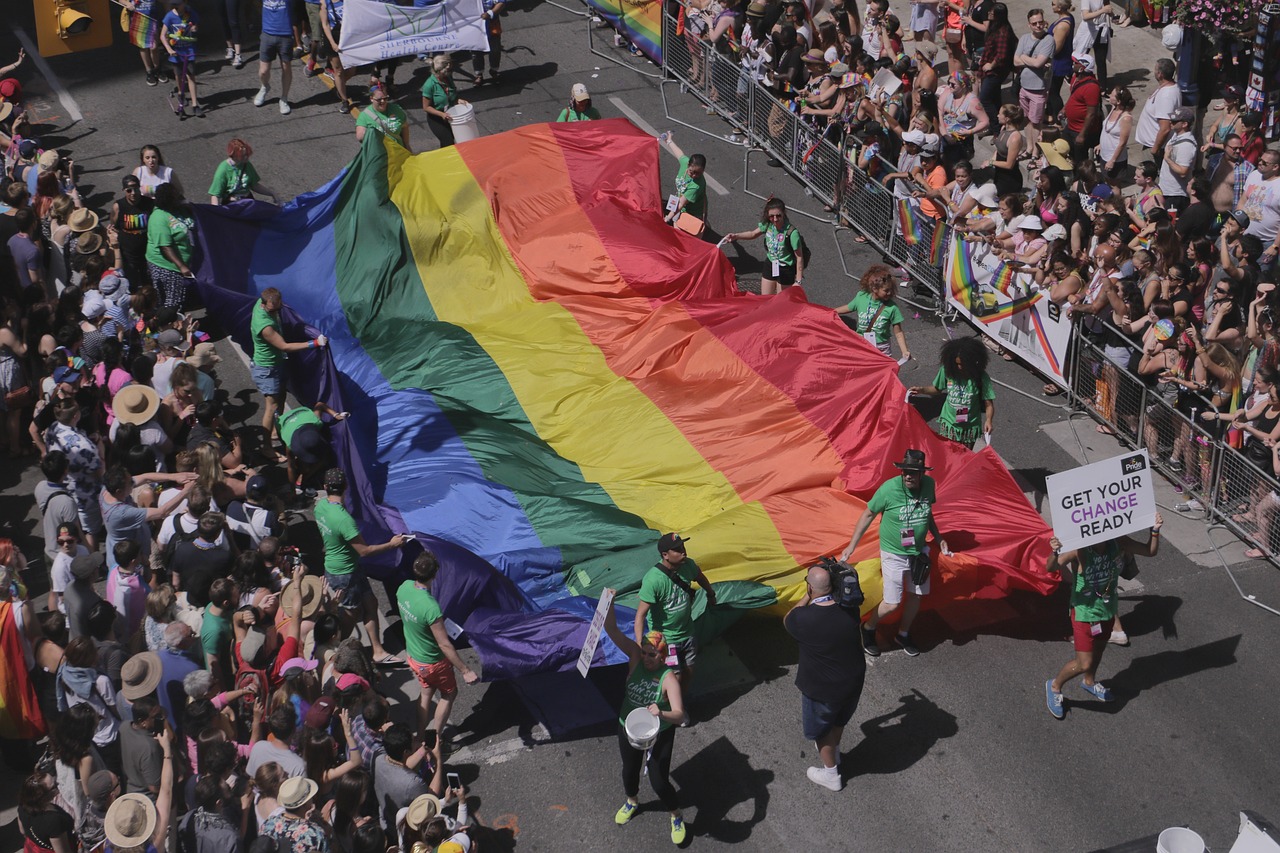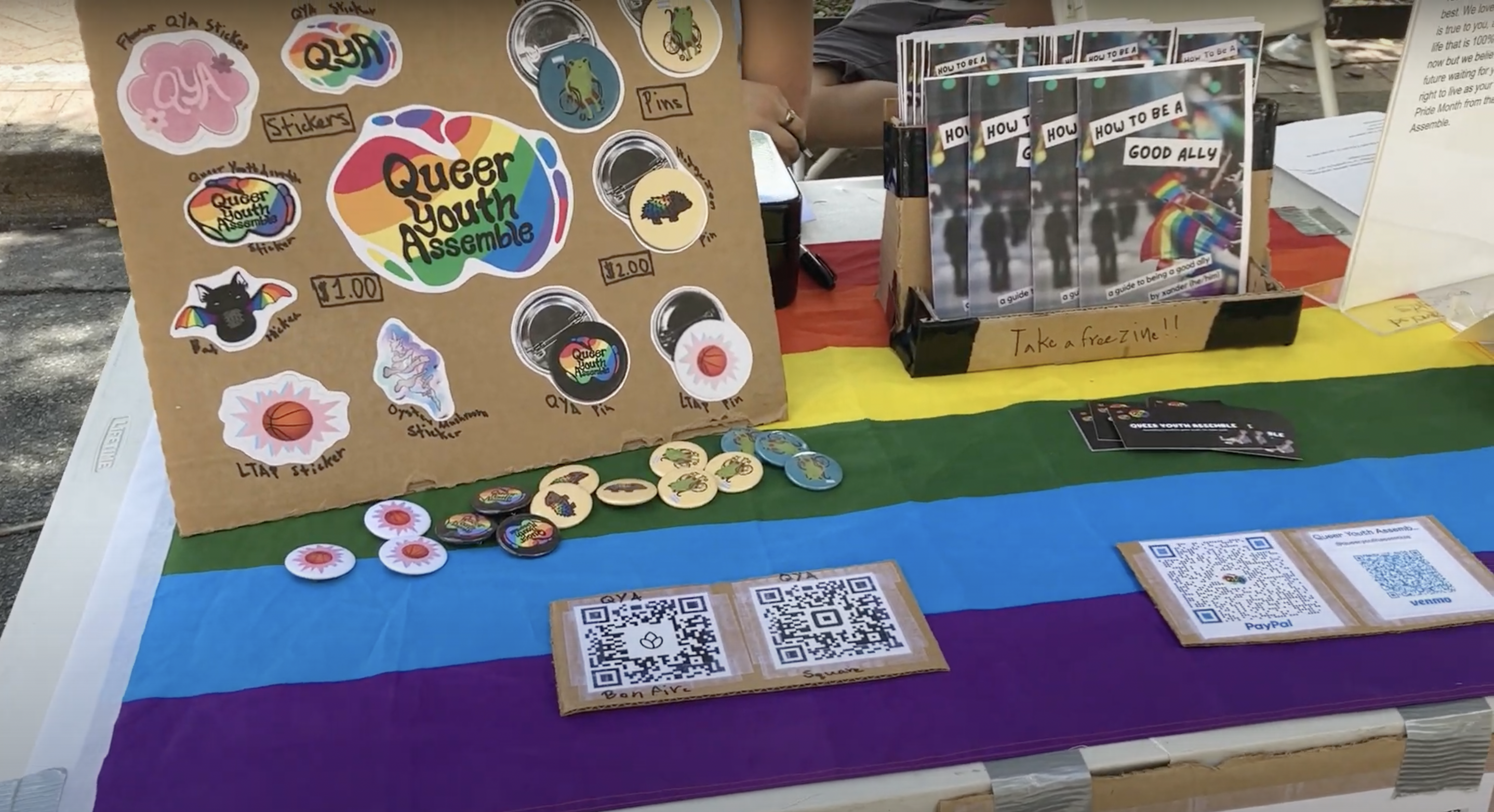This interview was originally published in March 2023.
Cameron Samuels (they/them) is an an anti-censorship activist. At Katy ISD in Houston, Texas, they successfully overturned a policy banning students from accessing LGBTQ-supportive online resources. They also organized book distribution to protect students’ access to books which had been banned for discussing race, gender, or sexuality.
this piece includes three sections:
i. quest: personal experiences with change & agency
ii. imagination: visualizations of a different, better world
iii. bridges: thoughts about change & the bridge from one reality to another
i. quest
It was November 2021 when I first spoke at a school board meeting on the issue of book banning and the LGBTQ Internet filter. Just three months later, we started distributing books. It was a movement that we built, one that started with me being the only student to speak, feeling alone in that room by myself with nobody there supporting me, but then finding a community to grow with and take action and stand up for ourselves and each other. That was just so empowering—to see that we could come together. It was February when we distributed books. Publishers donated books, and so did nonprofits. We came together as club leaders, too: there was a book club, a GSA, a Democrats club, UNICEF, and a variety of others which held after-school club meetings for book distribution. We have such a large school district—nine high schools—and these policies really were affecting us, as youth. We were being left out of the conversation, and that’s when we decided, well, it’s up to us to stand up. Students aren’t going to have access to these books if we don’t distribute them. If parents and grandparents were speaking at school board meetings, challenging the books in the libraries and targeting us as queer youth, then the only people that were gonna stand up for us were us. And we sure did.
We had a vision of ready access to a variety of books and resources that not only affirmed our ideas but also challenged the oppression we were facing. The books we distributed were banned because they opposed the status quo that kept us struggling: the status quo of heteronormativity and white supremacy. Legislators were playing a game of politicizing identity at the expense of students. We had to support this literature. One our side, we had authors that we looked up to, and we had meetings with several of them on Zoom, and met some in person as well. These authors are everyday people. People with stories to tell, experiences to share. People who struggled when they were younger and wanted to write based on their experiences. Wanted to help young people reading their books navigate the struggles of sexual assault, of domestic abuse, of being a queer person, a queer young person in this country. Those experiences were unique to the authors but, through storytelling, universal to the readers. We needed those stories.
I graduated last year in May, and now I’m a student at Brandeis in Massachusetts. It certainly is like living in a different country. The community here is just so different than it is in Texas—and so many people here have no clue what’s going on in Texas. Their perception of political issues is so different. No one has even thought of this kind of discrimination being a reality in this country. The things that feel normalized to me are, in other people’s eyes, the worst that could happen. Texas can’t get rid of me this quickly—I’m still organizing from afar, as difficult as it may be, because I see that there is change to be made.
ii. imagination
Schools are a center of knowledge and growth. Growth is an important part of the education system. We are learning and building relationships with our peers every day in school. It’s so important that we learn about perspectives and experiences that we don’t typically see in our everyday lives. That’s why school should be a community where we can grow with each other. Banning books means erasing each other from the narrative and refusing to acknowledge our community. And so a vision to support each other revolves around the idea of moving past just acceptance towards taking an active role in making communities safer. We need relationships and conversations rather than politicization and weaponization. I think organizing on relies on relationships and the practice of leveraging those relationships to support each other.
Change is going to happen. It’s just a matter of when, and I hope that we can make it as soon as possible. It’s gonna take our persistence, but it’s going to come from us as marginalized youth, as marginalized people. We’re getting somewhere every day, and my vision for the future is just that. That we can make change. And that people outside of the South could recognize that there are struggles and challenges still happening, that Texas and other Southern states aren’t a lost cause, that there’s work that needs to be done, and we can’t just look away.
iii. bridges
When school districts and state legislators are challenging our identity and making policies that oppress us, it’s not just a matter of closing off perspectives that many don’t get to see. By making these discriminatory policies, they send a clear message that they want to erase us from the narrative. If queer people don’t exist, then queer people can’t struggle, is the way that many people are looking at it. But we can’t let ourselves be erased. We can’t ignore reality. It is reality that is happening every day. The least we can do is acknowledge it, and the best we can do is make life better for others, do better for others. That involves recognizing that we have individual struggles and we also have individual privilege.
Working with school board members and district officials in this movement has been challenging. But over time, it was having meetings with these decision makers that led to websites being unblocked. It was committee meetings to read banned books that returned them to the shelves. Some conversations wielded promises that weren’t kept later on; it was tough for us to follow up again and again. But it was our persistence with those in power that ultimately created tangible changes. It’s because of these relationships that change happens.




